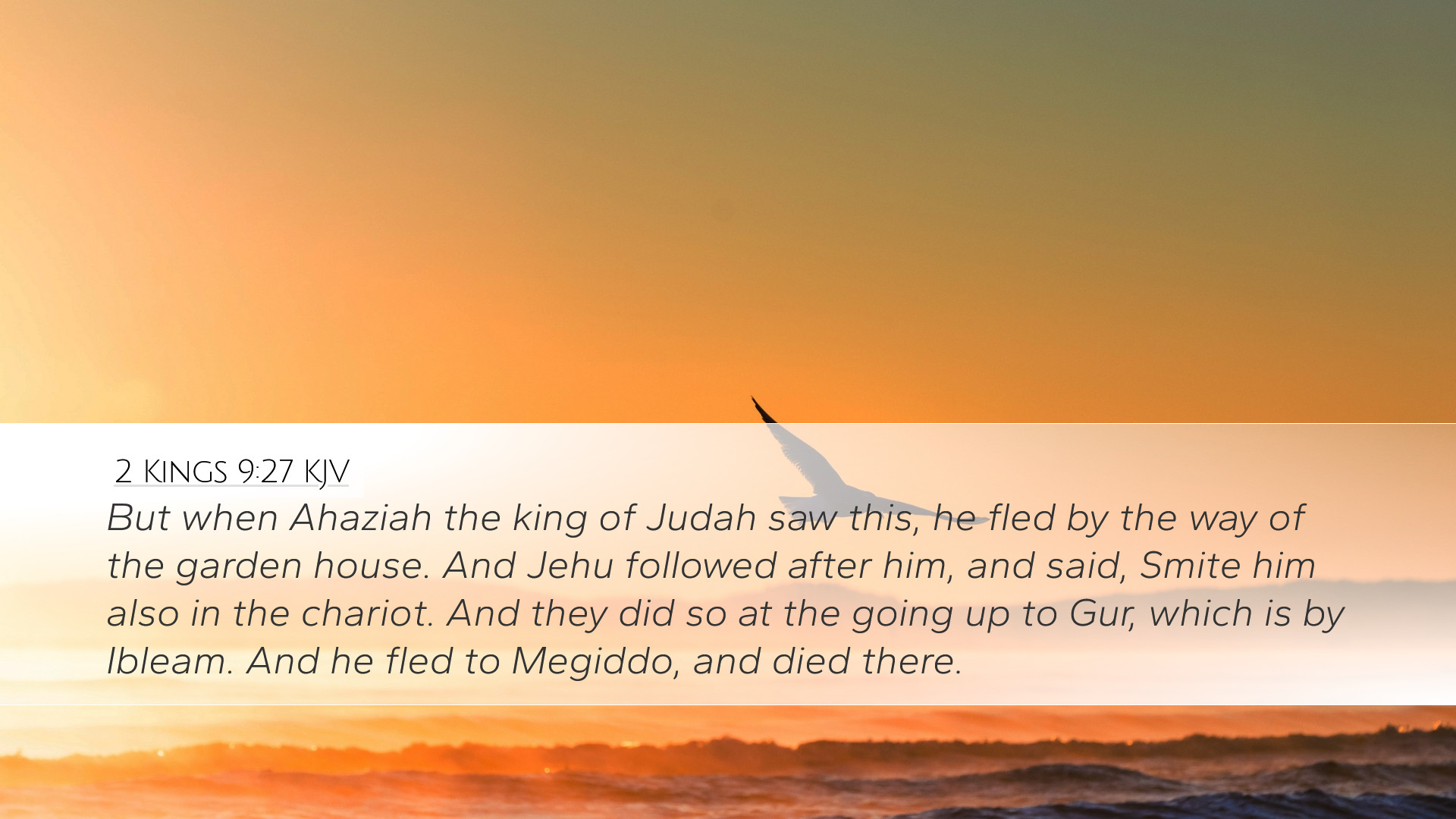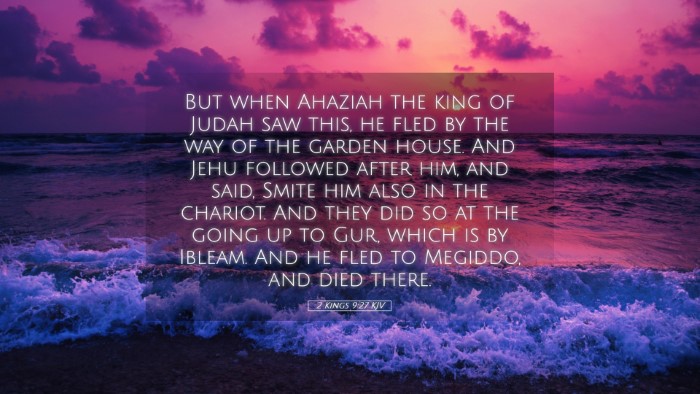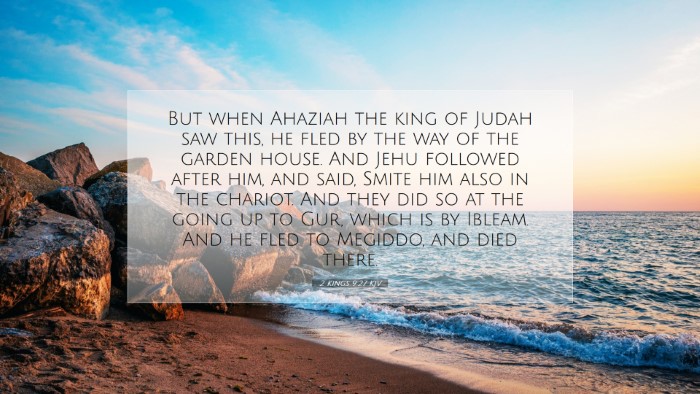Commentary on 2 Kings 9:27
Verse: "But when Ahaziah the king of Judah saw this, he fled by the way of the garden house. And Jehu followed after him, and said, Smite him also in the chariot. And they smote him at the going up to Gur, which is by Ibleam. And he fled to Megiddo, and died there." (2 Kings 9:27)
Introduction
This verse encapsulates a pivotal moment in the historical narrative of Israel's monarchy. The significance of Ahaziah's flight and subsequent demise at the hands of Jehu illustrates the themes of judgment, prophecy, and the divine orchestration of events in the unfolding drama of biblical history.
Contextual Overview
The backdrop of 2 Kings 9 is marked by the anointing of Jehu as king of Israel and the divine mandate to eradicate the house of Ahab and his progeny from the land. Ahaziah, the king of Judah, who was allied with Ahab's family, finds himself in dire straits as Jehu's destructive campaign unfolds.
Insights from Public Domain Commentaries
Matthew Henry's Commentary
Henry notes that Ahaziah's flight epitomizes the panic of a guilty heart. He had walked in the ways of Ahab, aligning himself with an evil dynasty, which now incurs divine judgment. The fleeing signifies the realization of imminent danger, reflecting a common biblical motif where the wicked seek to escape the consequences of their actions.
- Flight and Judgment: Henry emphasizes that Ahaziah's escape attempt was futile; he could not escape the decree of God. His flight to the garden house illustrates a desperate grasp for safety but ultimately leads him to destruction.
- The Pursuit of Jehu: Jehu’s relentless pursuit symbolizes divine justice. As Jehu calls for his death, we see the execution of God’s will upon the house of Ahab and their allies. This act serves as a reminder of the severity of judgment upon those who oppose God's plans.
Albert Barnes' Notes on the Bible
Barnes provides a historical and theological perspective on the events surrounding Ahaziah's death. He highlights that Jehu's actions align perfectly with the prophecies given about the house of Ahab and the impending reckoning:
- Historical Context: Ahaziah's lineage, tied to Ahab, signifies the collective responsibility of his house in perpetuating idolatry and violence. Barnes suggests that Ahaziah’s demise serves as a dire warning that familial alliances with the wicked bring about dire consequences.
- Symbol of God's Sovereignty: The passage shows that God remains sovereign over the affairs of men. Jehu acts not out of personal vendetta but as a divine instrument to fulfill God’s promises and judgments. This reinforces the idea that God’s purposes are ultimately fulfilled, regardless of human schemes.
Adam Clarke's Commentary
Clarke reflects on the implications of Ahaziah fleeing before Jehu. He explicates how Ahaziah's death is not merely a tale of political intrigue but a poignant fulfilment of God’s will:
- Theological Implications: Clarke argues that Ahaziah’s decision to flee rather than face Jehu highlights a spiritual reality where those in rebellion against God often react in fear rather than repentance. Ahaziah’s alliance with Ahab thus leads him to despair rather than to the grace of God.
- Geographical Notes: Clarke also points out the significance of the locations mentioned, such as Ibleam and Megiddo. These places are steeped in biblical history, having been significant in previous military encounters, and the mention adds a layer of depth to the narrative.
Thematic Reflections
This verse presents important themes relevant to both the historical and moral lessons the Bible presents:
- Divine Retribution: The swift execution of judgment serves as a theological affirmation of justice in the biblical narrative, emphasizing God’s authority over kings and kingdoms.
- The Fragility of Human Alliances: Ahaziah's alliances through marriage and politics showcase the vulnerability of human schemes against divine plans. His relationships with Ahab lead to his tragic end.
- Call to Righteousness: For modern readers, this story serves as a cautionary tale, urging believers to examine their associations and ensure they align with God’s purposes.
Conclusion
2 Kings 9:27 is rich with theological and historical significance. The passage illustrates the inevitable consequences of aligning with evil and the unyielding nature of divine justice. For pastors, students, theologians, and scholars, this scripture invites deeper contemplation on the ways in which God's sovereign plans intersect with human history, urging all to recognize the weight of their choices in the light of divine authority.


